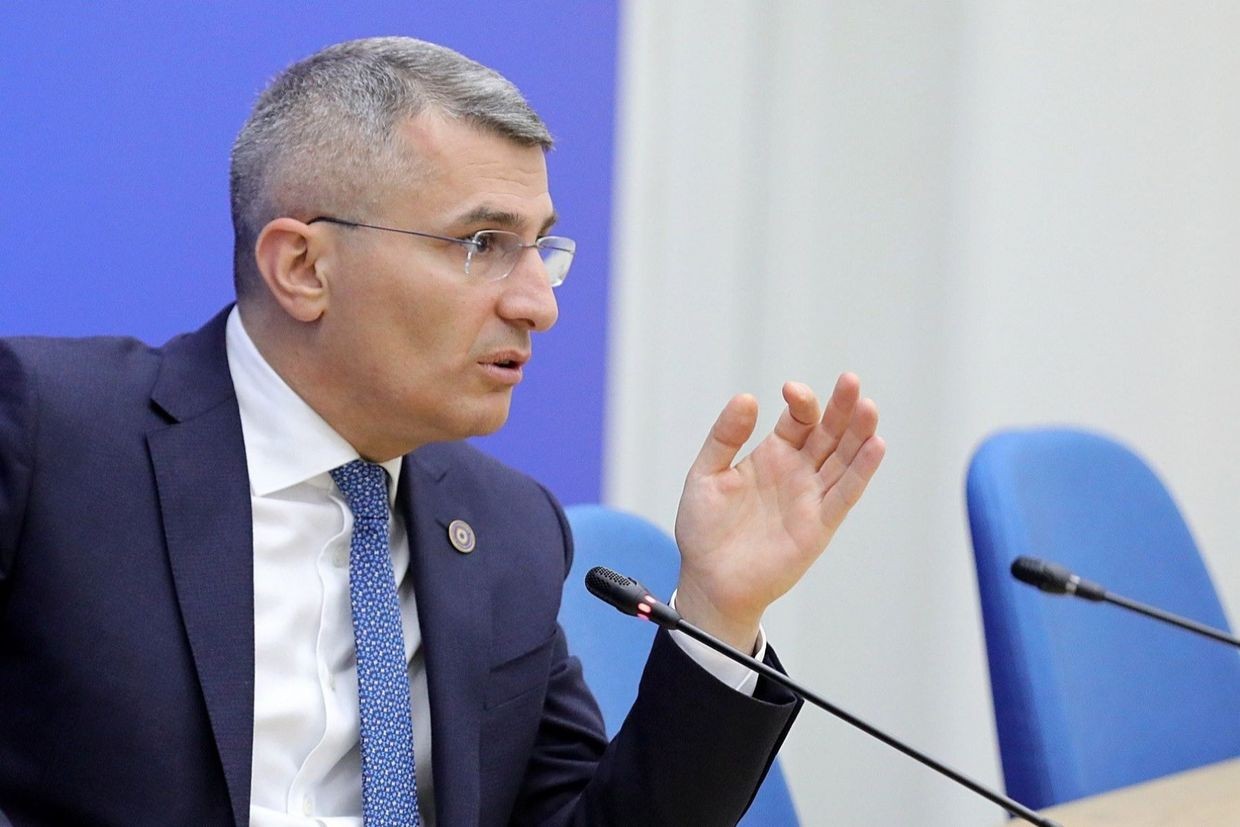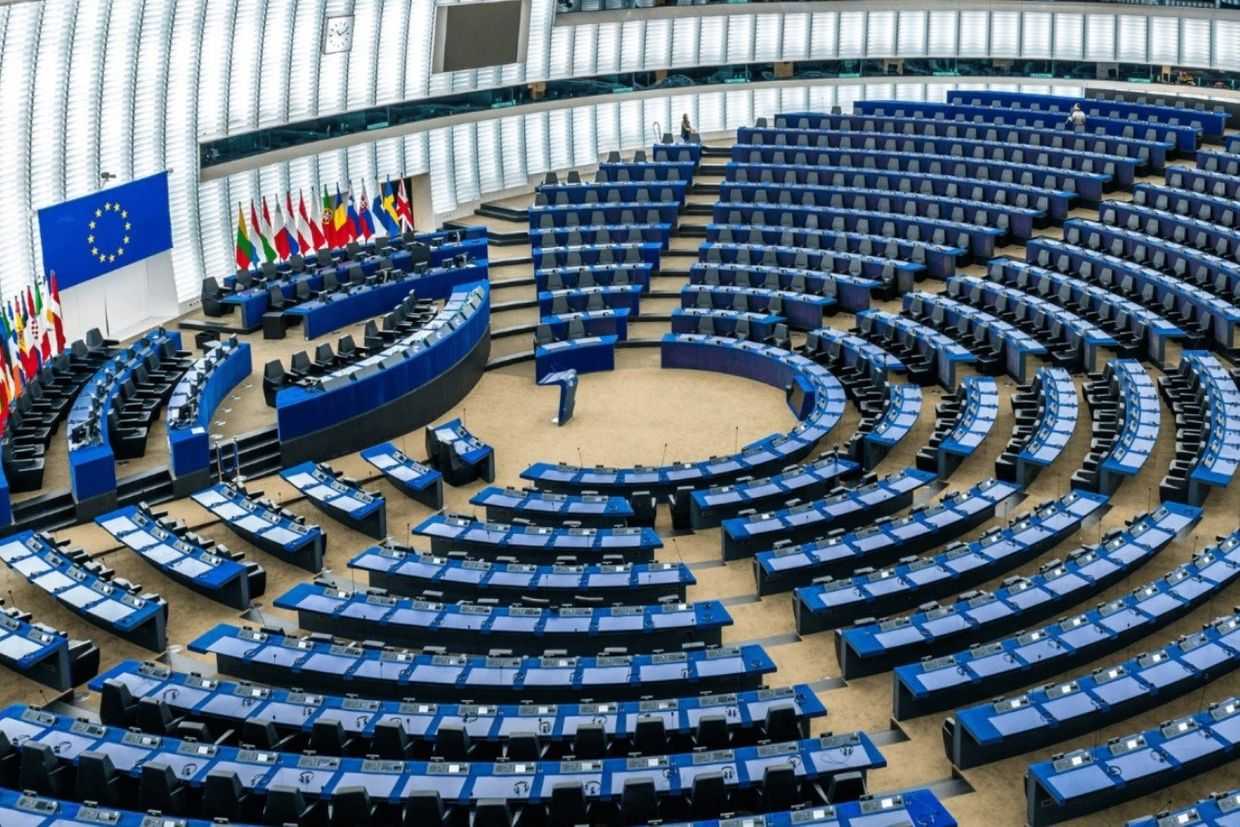Georgian Dream says opposition won’t be banned before October municipal elections, but soon after

The parliamentary leader of ruling Georgian Dream party, Mamuka Mdinaradze, has stated that what they call the ‘collective National Movement’ — meaning the biggest opposition groups in the country — will not be banned ahead of the municipal elections in October. Instead, he claimed that the parties would be banned shortly after.
On Monday, during a press briefing, Mdinaradze cited the insufficient time for the procedures required to dissolve parties as the reason for this which was caused by the extension of the parliamentary temporary investigative commission’s work period.
According to him, the parliamentary commission raised the issue of the need to extend the three–month term of the commission’s activities by at least one month, to which Mdinaradze stated that the parliamentary majority decided to ‘agree with this request of the commission in the future’.
‘[...] If the commission had only a three-month term for its work, it would have been possible to complete all procedures before the local government elections in accordance with the relevant rules’, he said.
‘However, if we extend the term by one month, we can already say that it is physically impossible to complete the process within this term. Accordingly, we will receive an objective reality when the collective national movement will once again have the opportunity to participate in the elections’.
In March, Mdinaradze stated that the ruling Georgian Dream party planned to petition the Constitutional Court to declare opposition parties unconstitutional, based on the forthcoming conclusions of the parliamentary temporary commission investigating alleged crimes committed by the previous government under the United National Movement (UNM) rule.

The UNM, which ran in the October 2024 elections under the Unity — National Movement group alongside the Strategy Aghmashenebeli party, was in power between 2003–2012, and is most associated with former President Mikheil Saakashvili.
The commission to investigate the UNM’s time in power was established in February, and followed repeated pledges by Georgian Dream to punish the UNM — the ruling party has particularly focused on accusing the UNM of provoking and starting the August 2008 War.

During Monday’s briefing, Mdinaradze claimed that the parliamentary majority is ‘ready for the Georgian people to give the [foreign] agency parties a worthy answer in the elections this year and for us to win gloriously, and then prepare a very solid and fact-based constitutional lawsuit, which in turn should objectively become the basis for the Constitutional Court to ban the collective national movement this year, very soon after the self-government elections’.
Municipal elections in Georgia are scheduled for 4 October, but as of the time of this publication, it is unclear which opposition groups plan to participate.
‘We will not allow anyone, either inside or outside the country, to speculate on the issue that the Georgian Dream rushed to ban the collective National Movement right before the local elections, and since it has become necessary to extend the commission’s term, we will definitely not try to force action’, Mdinaradze claimed on Monday.
The ruling party and their satellites have been using the term ‘collective National Movement’ to refer to an undefined list of pro-Western liberal rival groups, applying it to all groups that either spun off from the UNM, are led by former UNM officials, or who Georgian Dream allege have cooperated with their primary rivals in some way.
On Tuesday, Mdinaradze also stated that a lawsuit regarding the ban on parties will be filed with the Constitutional Court by October.
‘I am sure that the Constitutional Court will have no other choice if it judges this issue at least somewhat objectively. The [opposition] parties will be banned this year’, he said.
The Chair of Unity — National Movement’s Political Council, Levan Khabeishvili, stated that ‘the public must understand that this threat, which exists and is real, involves not only banning the opposition party, but also banning absolutely different opinions. In this direction, in fact, the Russian regime is now working’.
Initially, the commission was supposed to investigate the events that took place between 2003 and 2012. However, its mandate was later expanded to cover events from 2012 to the present.
A number of opposition politicians who were summoned did not appear before the commission. For this, they might face imprisonment.
The prosecutor’s office has filed cases against several of them and the court has granted them bail. Among them are Mamuka Khazaradze, Badri Japaridze, and Irakli Okruashvili.









